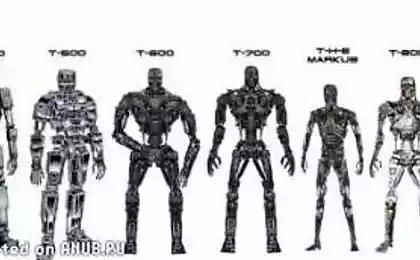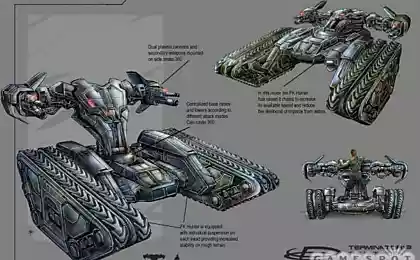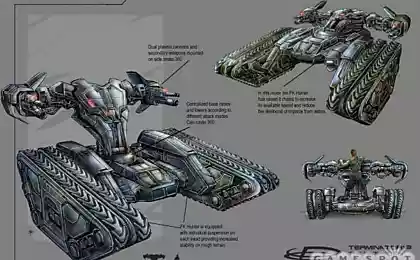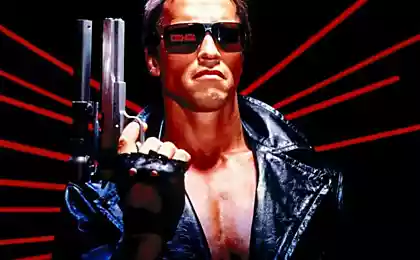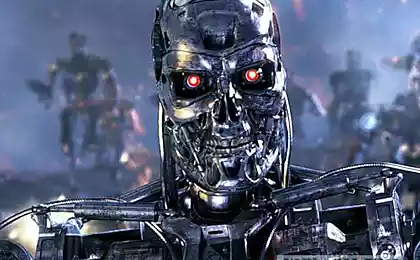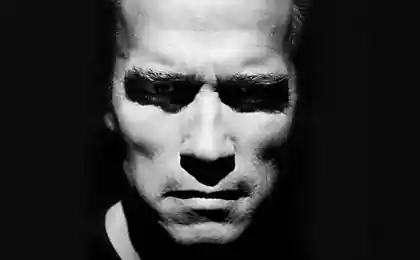584
"Terminator 2: Judgment Day" celebrates 25th anniversary
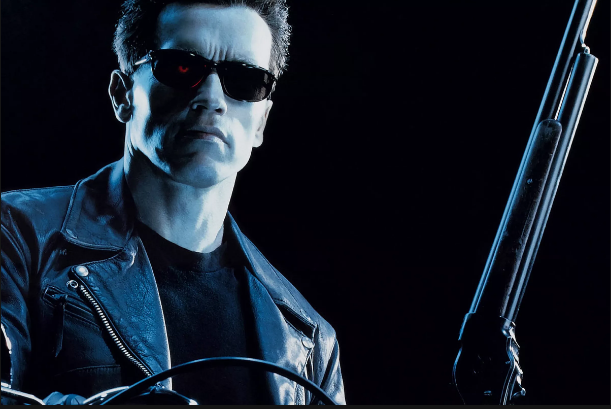
Photo Carolco Pictures Inc.
July 1, 1991 in worldwide box office started the film James Cameron's "Terminator 2: Judgment Day." It is no exaggeration to say that the film is immediately received the status of a cultural phenomenon, with one of the few cases in which and demanding critics and ordinary viewers think about the same. The movie spawned a separate universe: a novelization, serials, sites, fanfiction. Moreover, the story told in "The Terminator," has even become the object of philosophical inquiry in the book "Terminator and Philosophy: I'll Be Back, Therefore I Am", released in 2009.
On the Internet you can find a variety of materials, both devoted to the history of the "Terminator", including almost original research in Russian. Also available on YouTube a huge number of commercials, as a professional quality, and an amateur. Who would not want to repeat the articles from the category of "10 little-known facts", and I would like to dwell on the curious observation that made philosophy professor Mark Rowlands of the University of Miami in his book "The Philosopher at the edge of the universe. NF-philosophy, or Hollywood comes to the rescue: the philosophical problems in science fiction movies, "and which, according to the author, explains the success of the film
. About 10 years before the release of "Terminator 2" at the box office came another cult science fiction film - "Blade Runner," Ridley Scott filmed on the novel by Philip K. Dick "Do Androids Dream of Electric Sheep?". In it is also abundantly demonstrates the future of the world, indistinguishable from human robots called replicants here, there are shooting, fights and other attributes of a fascinating movie. But - most importantly - in the final it turns out that a replicant, which was the whole movie goes hunting, showing very real human qualities, and at the last moment decides to save his pursuer from certain death.
The concept - "Cyborg" - appeared relatively recently. He coined in 1960 by Manfred Clynes and Nathan Kline, a researcher in the laboratory of dynamic modeling in New York. During this time, it managed to receive a lot of works of mass culture, which appeared artificial intelligence, while often his behavior in the end proved hostile to man. We can recall, for example, the HAL 9000 from "Space Odyssey 2001" Stanley Kubrick or warlike machines of the more philosophically subtle than the film Cameron, "The Matrix" directors the Wachowski. In other words, consciously or unconsciously, but popular culture has had time to form a generally negative expectations of artificial intelligence (even Elon Musk afraid of SkyNet), and appearing in the box office movies with robots often came out with titles like "Cyborg Assassin" (in one of the Russian localizations the first "Terminator" it was called).
The "Day of Judgment" has several iconic scenes that completely changes the perception of the terminator. In directing the film version of Sarah Connor with his son "modified" T-800 cyborg in introducing self-learning mode. And this episode is further developed in the other two: it is easy to recall the conversation Terminator and John, in which the boy tells the robot to why people cry, or the thoughts of Sarah, who suddenly realizes that "... terminator never stop he would never leave him, never do. hurt him, never shout at him, do not get drunk, do not hit him and not say. "I'm too busy and have no time for you," he will always be there and he would die to protect him, "in other words, the cyborg has become. much nicer, and the final scene of the movie, when the Terminator says he understands why people cry and gently lowered into the molten metal, generally allows safely say that in the moral sense, the robot became a man.
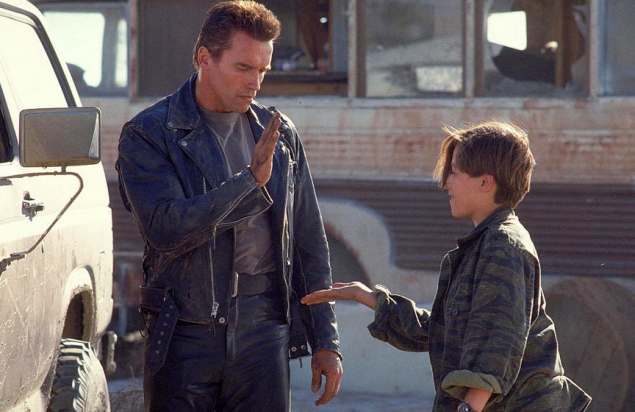
Photo Carolco Pictures Inc.
It is possible that due to the "humanity" of the Terminator, and he became so popular, despite the efforts of the mass culture that promotes AI as a kind of evil that may occur in the future. Of course, it is impossible to write off, and Cameron's skill as a director and the magnificent surroundings of the film, generously laced with car chases, explosions and time travel, which does not look very alien. Interestingly, in the Proceedings of the franchise, which involved the T-800, its "humanity" brought to the extremes you can remember the episode of the absurd points in the third part or the absolutely bizarre jokes in "Terminator: Genesis", so that a sense of proportion inherent mass audiences, it generally does not change. Thus, according to Mark Rowlands, cultural expectations in the early 1990s were actually far from being gloomy skepticism, which is usually attributed to a consumer society. People still want to see a strong and good character, at the same time with a sense of proportion and taste, which are likely to show the power of only a very small number of directors of our time.
Source: geektimes.ru/post/277984/
